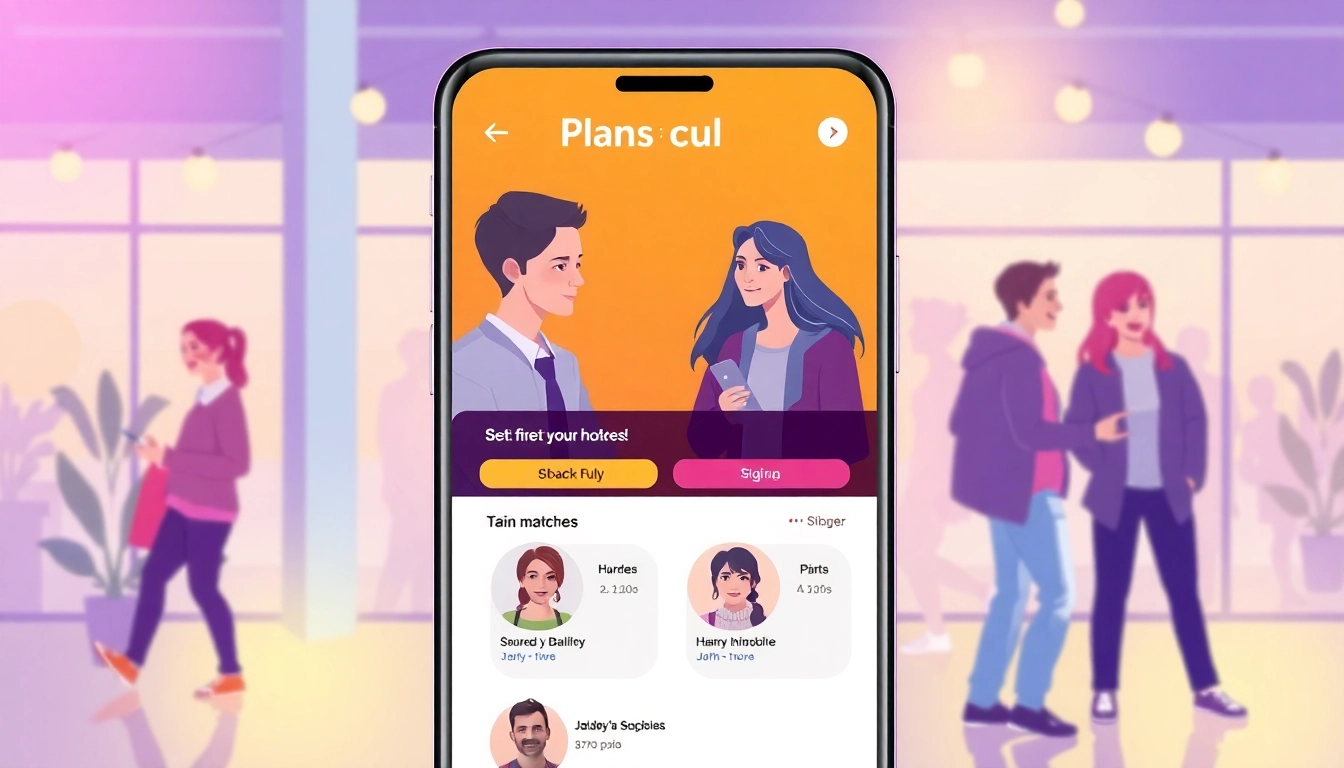Understanding Plans Cul: Definitions and Boundaries
In modern casual dating culture, the term plans cul has gained significant popularity, especially among individuals seeking no-strings-attached encounters. Derived from French slang, “plan cul” directly translates to “ass plan,” but its real meaning extends beyond literal translation. It refers to a sexual relationship or encounter that is purely physical, devoid of emotional attachment or long-term commitment. This concept allows adults to explore sexual freedom while maintaining personal boundaries, but understanding the nuances is vital for success.
What Does Plans Cul Mean in Today’s Context?
Today, plans cul are often characterized by spontaneity and discretion. They serve as a form of recreational sex, often initiated through online platforms, social media, or dating apps. Participants usually seek mutual gratification without the obligations typically associated with romantic relationships. It’s essential to recognize that such arrangements are consensual and based on clear communication, emphasizing mutual understanding rather than ambiguity.
Legal and Ethical Considerations for Casual Relationships
Although plans cul are socially accepted in many circles, they are also subject to legal and ethical considerations. Consent, privacy, and safety are paramount. Engaging in sexual activities with clear consent and ensuring protection against sexually transmitted infections are non-negotiable. Moreover, respect for privacy—both digital and personal—is crucial to avoid legal complications or personal distress. Understanding local laws regarding consent and age restrictions is equally important.
Common Terminology and Slang Variations
The vocabulary surrounding plans cul is rich and diverse. Terms like “booty call,” “hookup,” “one-night stand,” and “casual sex” are often used interchangeably, though they can carry subtle differences. For instance, a “one-night stand” typically implies a single encounter, while a “booty call” might involve repeated casual encounters without emotional ties. Familiarity with these terms enhances communication and sets proper expectations.
Effective Tips for Finding Plans Cul Partners
Top Online Platforms and Apps for Casual Encounters
The digital age has revolutionized how people find plans cul partners. Specialized websites like PlansCul and mainstream dating apps with filters for casual relationships are popular choices. Features such as anonymous profiles, mutual matching, and discreet messaging facilitate secure and private interactions. Prioritize platforms that prioritize user verification and privacy to minimize risks.
Using Social Media Discretely and Safely
Social media platforms like Snapchat, Telegram, and WhatsApp are also leveraged for discreet encounters due to their ephemeral messaging and privacy features. However, these platforms come with caveats—they can be less secure and more prone to privacy breaches. Always exercise caution, use pseudonymous profiles, and avoid sharing personal information prematurely. Remember, discretion should never compromise safety.
Strategies to Maximize Compatibility and Discretion
Effectively finding a compatible partner involves clear communication about boundaries, expectations, and safety protocols. Using detailed profiles, honest bios, and explicit conversations ensures alignment. Additionally, setting boundaries about location, online presence, and post-encounter interactions helps maintain discretion and mutual respect.
Preparing for a Successful Plans Cul Experience
Pre-Meeting Hygiene and Safety Precautions
Hygiene remains a cornerstone of any sexual encounter. Showering, oral hygiene, and grooming demonstrate respect for oneself and one’s partner. Moreover, discussing sexual health openly and exchanging STIs test results can significantly enhance safety. Using protection, such as condoms or dental dams, is essential in preventing infections and preserving both parties’ health.
Setting Clear Expectations and Boundaries
Transparency about desires, limits, and safe words creates a secure environment. Clarify whether the encounter is a one-time event or if repeats are acceptable. Discuss preferences regarding activities,禁止 poaching, and emotional boundaries. This proactive approach minimizes misunderstandings and enhances mutual satisfaction.
Communication Tips for Mutual Consent
An open, honest dialogue fosters trust and consent. Ask questions about comfort levels, preferences, and boundaries. Use affirmative language—”Are you comfortable with this?”—and listen actively to responses. During the encounter, check-in if needed, respecting the other person’s signals and cues.
Enhancing Your Plans Cul Encounters
Spicing Up the Experience with Role Play and Props
To keep encounters exciting, introduce role-playing scenarios or props. This playful variation can boost arousal and deepen engagement. Whether adopting different personas or experimenting with sensory toys, these additions should be consensual and prepared thoughtfully.
Post-Meet Reflection and Safe Practices
After the encounter, reflect on the experience. Sharing feedback can improve future interactions. Reinforce safe practices by discussing sexual health plans and respecting agreed-upon boundaries. Keep communication open to transition smoothly into subsequent encounters or to gracefully end the arrangement.
Maintaining Discretion and Respect in Ongoing Encounters
Consistency and respect foster trust, especially if encounters become recurrent. Use discreet communication channels, respect privacy, and avoid sharing personal details without explicit consent. Mutual respect ensures a positive and safe experience for both parties.
Common Challenges and How to Overcome Them
Addressing Misunderstandings and Misaligned Expectations
The most frequent issue in plans cul is miscommunication. To prevent this, clarify intentions upfront and revisit expectations regularly. If misunderstandings arise, address them promptly through honest dialogue.
Handling Disappointment and Rejection Safely
Rejection can be difficult but should be handled with maturity and respect. Accept boundaries gracefully and avoid pressuring the other person. Remember, rejection is a part of casual dating that preserves emotional well-being.
Protecting Privacy and Personal Data
Protect your personal identity and sensitive information. Use pseudonyms, avoid sharing identifiable images early on, and consider encrypting conversations. Be cautious about digital footprints to prevent future complications.

